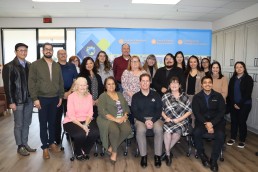California Violence Intervention & Prevention
First Ever — Health & Safety Plan
for Jurupa Valley
California Violence Intervention and Prevention (CalVIP) works to improve public health and safety by supporting effective violence reduction initiatives in communities that are disproportionately impacted by violence.
Join Our Town Hall
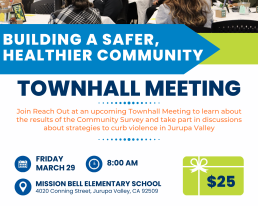
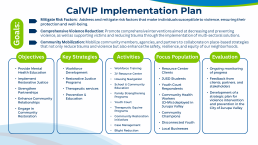
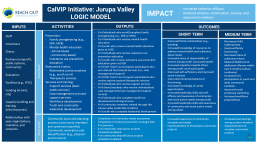
CalVIP Objectives:
- Provide Mental Health Education
- Implement Restorative Justice
- Strengthen Partnerships
- Enhance Community Relations
- Engage in Community Restoration
What Role Should Schools Play in Conversations About Gender Identity?
Helping Families Navigate Challenging Conversations
by Diana Fox, Executive Director of Reach Out, and Omar Gonzalez-Valentino, M.S., LMFT, LPCC
Recently, schools have implemented policies to notify parents if students identify at school in a way that is different from their birth-assigned gender. The policies have sparked controversy and debate around the role our schools play in the relationships between parents and children. More specifically, these policies have inspired conversation about the responsibility of schools to tell families how their kids choose to identify at school.
Regardless of whether it is “right” or “wrong” for schools to insert themselves into what is essentially a family conversation, the issue being raised here is not about schools and legalities. And it isn’t about parents’ rights.
What is the real issue at stake in gender notification policies?
The real issue surrounds the children we’re raising in the Inland Empire and beyond, and whether they have the support and tools they need to adequately explore the world they’re growing into and find their places within it. It also lies within the fabric of these families–have we as a community adequately equipped families to navigate difficult conversations with their kids?
No matter our personal beliefs on this topic, there is no denying that the world our kids are growing into is vastly different than the one into which their parents and grandparents were raised. Unless the seeds of communication and understanding were planted during their grandparents’ generations, many families may not have the ability to engage in open communication about issues surrounding gender identity and sexuality in ways that don’t alienate one party or another.
For these families, the notifications have the potential to do real harm. If a child hasn’t confided in their family, we can assume there must be a reason. While for some, the reason may simply be a lack of trust, for others it may be founded in legitimate fear for their own safety. Certainly, the goal of this policy is not to endanger those of our children who already live in less-than-stable home situations.
However, that's an unfortunate consequence these policies can have.
A Call To Action
Let’s assume notifications proceed. Let’s assume not all kids will be safe once their families are told something they don’t want to hear.
What can we do–or more importantly, what can those most affected: our kids–do to reinforce the support for their well-being and that of their peers? As adults and concerned citizens, we can continue to inform ourselves, to learn and grow, to accept differences among people (even people we consider part of us, because in truth, our children are individual human beings.) We can continue to fund resources for mental health and crisis intervention, and we can continue to talk to–and listen to–our children about the things we each struggle to understand.
And our kids can continue to express their identities however they feel called to do, while making it safe for their peers to do the same. They can charter clubs and associations like the Gay-Straight Alliance (GSA) and the National Association on Mental Illness (NAMI) at their schools to provide resources and support for one another. They can embrace and utilize wellness centers and counselors provided by organizations that use grant funding for exactly this purpose. And if they are in fear, they can access crisis centers and other resources to help manage their situations.
But the real call to action for all of us is to work harder on opening lines of communication, slowing down and asking ourselves to both talk and really listen. After all, the greatest illusion around communication is that it has actually occurred.
RESOURCES:
The Merrill Center is a short-stay crisis stabilization unit (CSU) that offers 24/7 services to adults and youth. The Merrill Center aims to increase access to crisis services, reduce inpatient hospitalization, reduce the amount of time that law enforcement is involved in a mental health crisis, and strengthen the existing outpatient behavioral health services. Merrill Center is under contract with the San Bernardino County Department of Behavioral Health.
The center features 20 chairs with four reserved for serving youth of all ages. We serve adult and youth residents of San Bernardino County.
Walk-in clients are welcome. Individuals in crisis can access CSU services on their own or by referral. Referrals to the Merrill Center will be accepted from the San Bernardino County Department of Behavioral Health (DBH) outpatient clinics, full-service partnerships (FSP), DBH Community Crisis Response Teams (CCRTs), law enforcement and first responders, hospital emergency rooms, mental health assessment teams, and other county medical clinics and departments.
Address: 14677 Merrill Avenue, Fontana, CA 92335
Hours of Operation: 24 hours a day, 7 days a week
The United Way Inland Southern California Crisis Hotline:
The Inland SoCal Crisis Helpline is the regional 24/7 crisis and suicide hotline for Inland Southern California. It is free and confidential and you may remain anonymous. Trained counselors are available to provide support and resources to best help you. Bilingual counselors are available.
951-686-HELP (4357)
Riverside Pride, Inc: Riverside Lesbian, Gay, Bisexual, Transgender, Queer Pride Inc.
(Or Riverside Pride, Riverside LGBTQ+ Pride Inc for short) is hard at work improving life for the LGBTQIA+ communities in the Inland Empire. If you or someone you know is struggling or in crisis, help is available. Text or call 988 or chat 988lifeline.org.
Talking to kids about identity: Planned Parenthood offers resources to guide tough conversations. Lesbian, gay, bisexual, transgender, queer, and gender nonconforming people are a part of every community and beloved members of many families. Learn how to discuss sexual orientations and gender identities with your kid, and how to support them if they’re LGBTQ.
Substance Use Navigators (SUNs): Bringing Hope to Dark Places
Recently we chatted with one of our collaborative partners, Lisa Molina from Solid Ground Wellness in Riverside about the critical role that Substance Use Navigators (SUNs) play in the community. Lisa is the SUN trainer in the Community Health Worker training program here at Reach Out, and she is uniquely qualified to discuss the intricacies of helping those with substance use disorders.
Lisa Molina started Solid Ground with her daughter and son-in-law after working for 24 years in one of the biggest treatment facilities in Riverside. The career she ultimately chose came on the heels of her own struggles with substance abuse. When Lisa tells her story, it’s emotional. She was pregnant and using before she found help, and her daughter was born on the heels of a purposeful overdose when Lisa believed maybe the world would do better without her.
Her survival and her ongoing work has definitely disproven that idea.
The SUNs that Lisa trains through her work with Reach Out are making a real difference to the populations of the Inland Empire, where substance abuse is a health crisis. The purpose of the training, she explained, is to give the SUNs the ability to “walk in and meet any situation with confidence. Many of the individuals that Reach Out works with are unhoused, and have substance use and mental health issues. So it's imperative for the community health worker to be able to evaluate first of all for their safety, but then also what the symptomatology is for certain substances. Is the individual displaying certain behaviors, is this a mental health disorder or is it a substance use disorder or a combination thereof?”
The SUNs that Lisa trains are able to recognize the signs and symptoms of a variety of issues and symptoms of specific substances, and they’re also trained in how to recognize an overdose. The SUNs are equipped with Narcan, and because of the urgency of the situation, they’re often the ones who prevent the loss of a life from overdose.
Who Are Community Health Workers?
According to Lisa, Community Health Workers, or CHWs are a bridge between medical services and the community.
“A CHW could be anybody who wants to have a community impact.” CHWs are lay people who help with everything from accessing pharmacy services to actually scheduling appointments on a patient’s behalf when that patient might not know how to do so. “A Community Health Worker is really somebody that just walks alongside the patient and assists them with hands-on resources that the individual may need.”
There is a growing need for CHWs in the Inland Empire, and Reach Out is working with the counties to meet that need. Cohorts are forming for new CHWs and classes are taught in Spanish and English.
Once an individual becomes a CHW, the Substance Use Navigator is another layer. This additional training consists of a 20-hour education piece delivered over 10 weeks, two hours each week. And it provides everything from the ethical responsibilities of somebody that's providing any type of substance use treatment to help identifying cultural barriers and bias.
Individualized Care in Riverside Through Solid Ground
In addition to training SUNs for Reach Out, Lisa and her family provide individualized care to individuals in Riverside who are seeking outpatient substance abuse treatment. Solid Ground also serves individuals who are waiting to go into a residential site who need support and resources while they're waiting to go in.
“I think our unique backgrounds - knowing that we’re intimately familiar with substance abuse and criminal involvement in our pasts - that gives hope and inspiration to clients when they know that we've been where they're at and have come full circle.”
Solid Ground also finds success working with younger clients. “Working with youth is a wonderful spot because the counselors are younger than the client's parents, but older than the client. So they're able to give the lingo and connect with them where the parent wouldn't be able to. The counseling staff is at that prime age to be able to do so.”
In a situation where so many wouldn’t want to share their story, Lisa and her family take pride in their background because it’s what enables them to help so many people in their community. “My daughter’s father ultimately died from an overdose, and she saw him using, and knows what that is like, and what it did to our family.” That experience has been turned on its ear, and used to bring so much good to so many people.
Lisa encountered numerous barriers in her own journey to treatment, and the goal behind Solid Ground is to make treatment easy to access for those who need it. “I want to make sure that the barriers are not there for anybody that contacts us, and that we're able to help,” Lisa says.
If you’d like to learn more about drug treatment in Riverside or San Bernardino Counties, please access the following resources:
Substance Use Disorder and Recovery Services San Bernardino
Substance Abuse Resources Riverside
Solid Ground Wellness - Riverside
And if you’d like to learn more about becoming a Community Healthcare Worker or a Substance Use Navigator, please contact us.

